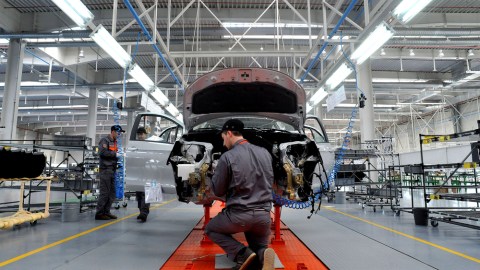An Ethics Meter Next to the Odometer? Not a Good Idea For Robot Cars.

What if robot cars came equipped with an adjustable dial to control the robot navigator’s ethics level? Would that shift liability away from manufacturers?? Is it a good idea to give that responsibility to consumers?
No, not at all, says Patrick Lin, PhD, the director of the Ethics + Emerging Sciences Group at California Polytechnic State University. Dr. Lin authored a piece up now at Wired detailing his reasoning. In order to demonstrate the quandary currently phasing fellow robot ethicists, he evokes the classic “trolley problem” by thinking up a scenario where a car’s AI would kick in:
Do you remember that day when you lost your mind? You aimed your car at five random people down the road. By the time you realized what you were doing, it was too late to brake.
Thankfully, your autonomous car saved their lives by grabbing the wheel from you and swerving to the right. Too bad for the one unlucky person standing on that path, struck and killed by your car.
The problem is this: when faced with a moral dilemma for which there are only two choices, one that results in one injury and another that results in multiple, what choice should AI be programmed to make?
“Swerving the car directly results in that one person’s death: this is an act of killing. Had it done nothing, the five people would have died, but you would have killed them, not the car manufacturer which in that case would merely have let them die.”
So why not give auto owners control of the ethics knob? First, doing so would not reduce the auto-maker’s liability because of the many different permutations of situations and choices that can be made:
“In an accident that requires choosing one victim over another, the manufacturer could still be faulted for giving the user any option at all—that is, the option to discriminate against a particular class of drivers or people.”
Other reasons Lin delves into: the irresponsibility of punting ethical choices to the consumer and the implication of premeditation in the event of an ethics-decided crash. He concludes his article (which is really worth a read, linked again below) by recommending the introduction of national legislation that protects automakers like companies that produce vaccines.
What do you think?
Read more at WIRED
Photo credit: Ju1978 / Shutterstock.com





